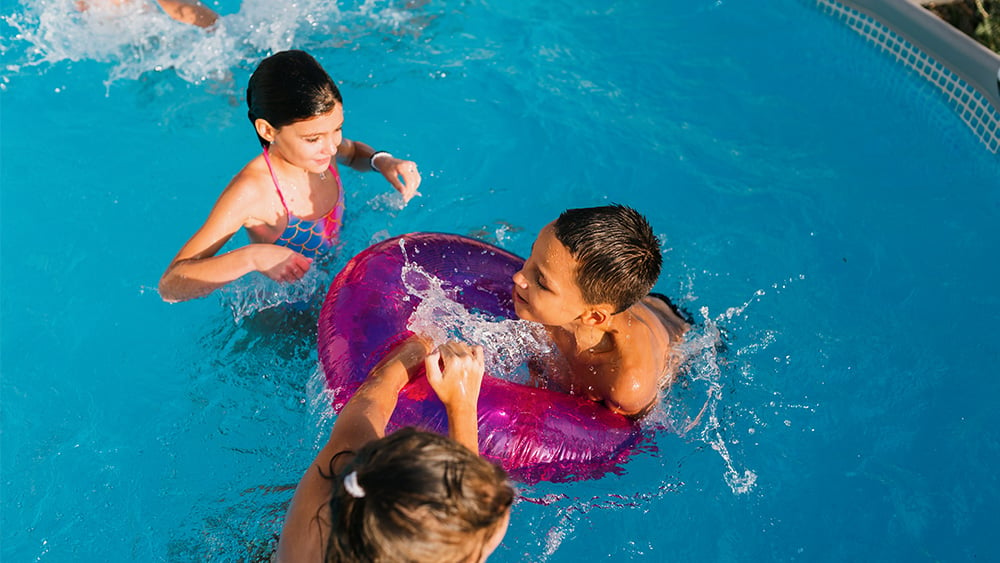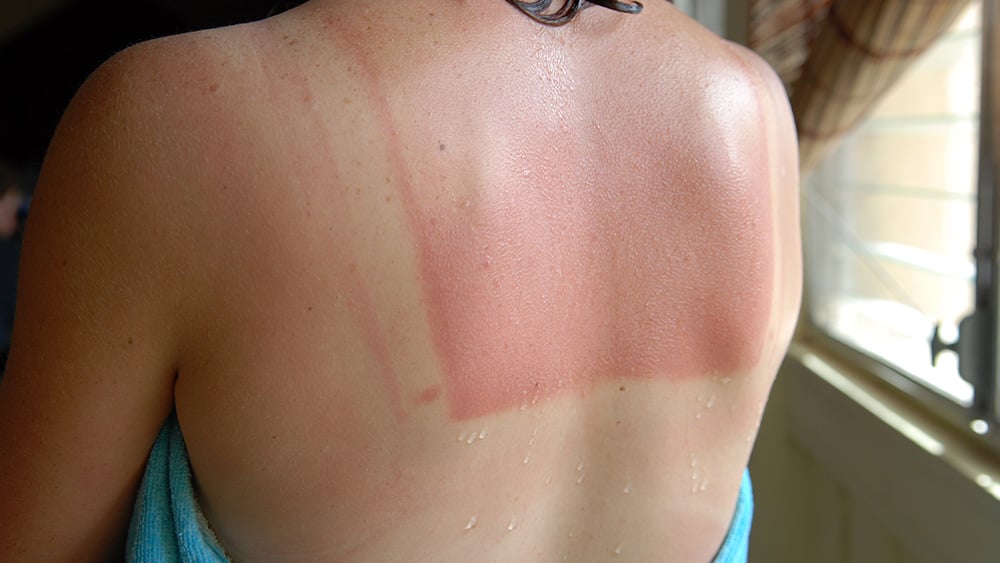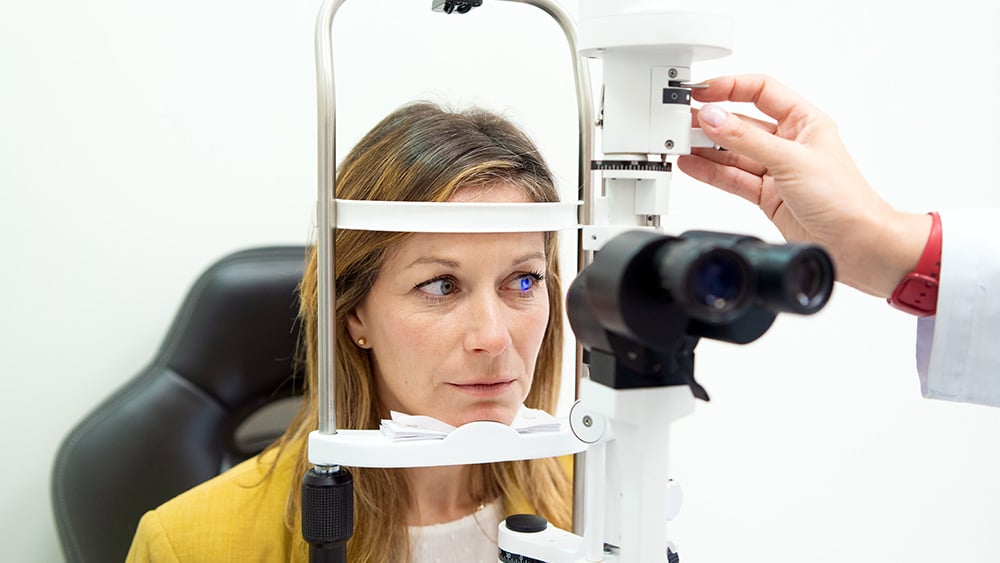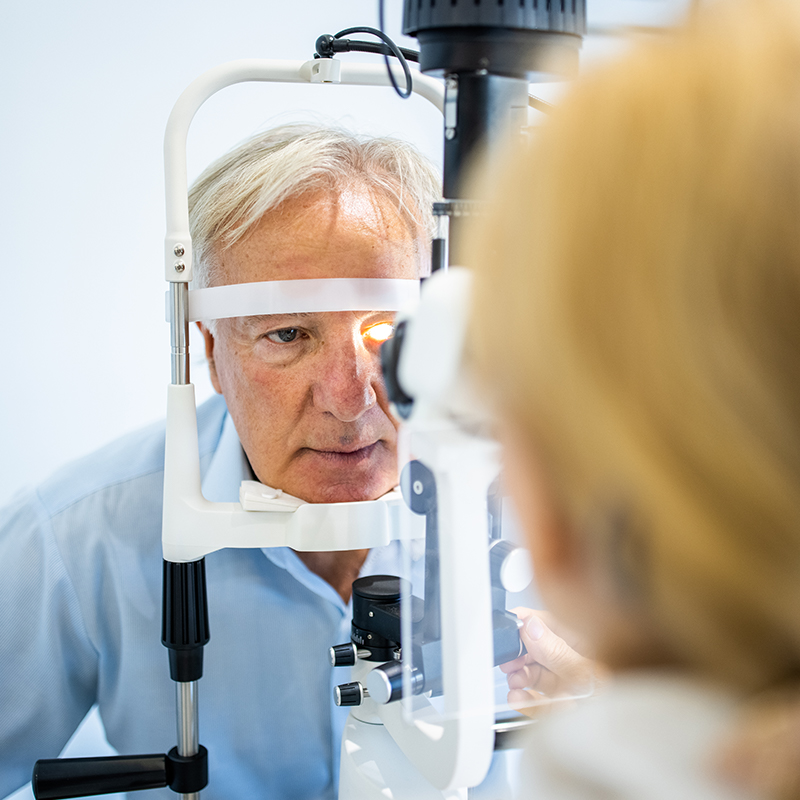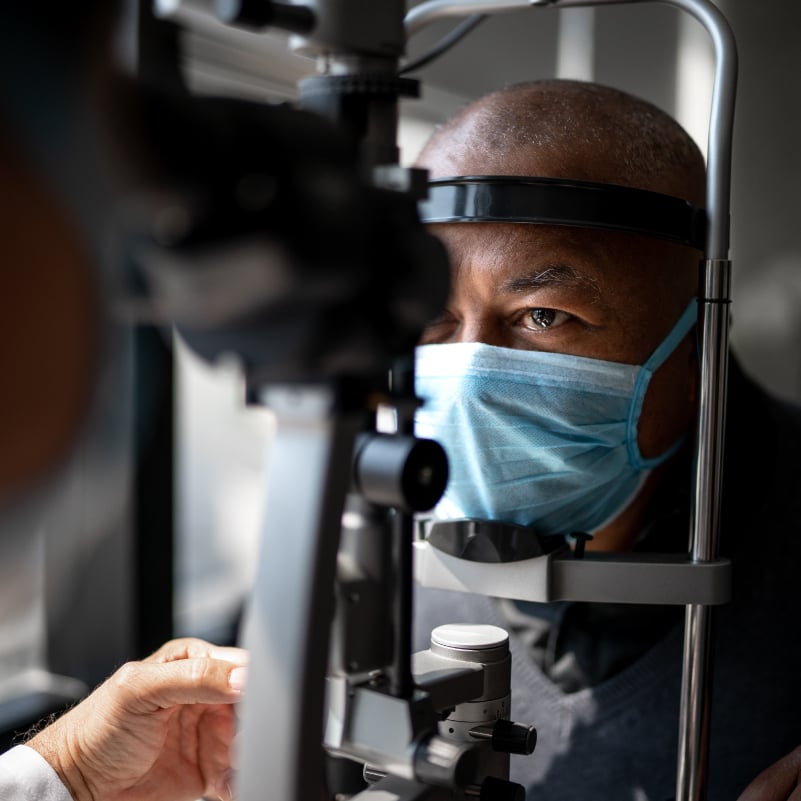Key Takeaways
- Exposing your eyes to chlorine affects the tear film on the eye, which makes them less moist.
- Most symptoms linked to chlorine exposure, like dry eye, are short lived.
- Wear swimming goggles, avoid wearing contact lenses underwater, and take breaks as needed to avoid hurting your eyes.
Swimming is one of the classic pastimes of summer – a great way to get outside and spend hours splashing, floating, and basking in the warm weather.
After spending a lot of time in pools, some swimmers may have eye irritation from chlorine in the water. Emily Gottschalk, OD, is an optometrist at Rochester Regional Health Eye Care in Greece and weighs in on how swimmers should deal with irritated eyes, and the best ways to prevent eye irritation.
How chlorine affects the eyes
Chlorine is added to pools to kill bacteria and algae, but also affects our eyes when we are swimming. When unprotected eyes are exposed to chlorine in the water, it affects the tear film that coats the surface of our eyes.
Tear film helps to keep the eyes moist and keeps our vision clear. If the tear film is disrupted, the eyes become irritated.
Symptoms of chlorine exposure in the eyes includes:
- dry eyes
- redness
- sensitivity to light
- tearing
- temporary blurriness
“Typically, chlorine will cause some short-term discomfort,” Dr. Gottschalk said. “We don’t necessarily see long-term effects, but with repeated exposure you can develop chronic dry eye or possible cornea damage.”
Finding relief from chlorine
The best way to make your eyes feel less irritated is by using lubricating eye drops. Dr. Gottschalk suggests putting artificial tear drops in your eyes four times a day until your eyes start to feel moist again. Choose an artificial tears product that is preservative free if available.
Avoid flushing your eyes with tap water; this actually can dry them out and wash away the tear film further.
“If you think about having dry skin, putting water on it dries it out further over time. Applying lotion will properly moisturize your skin,” Dr. Gottschalk said. “Artificial tears work in a similar way to lubricate your eyes and restore the tear film to protect your eyes.”
Another simple option for finding relief from chlorine irritation: Take a break from swimming.
Swimmers will see their eyes gradually return to normal within a couple hours to a day.
Best ways to prevent chlorine affecting your eyes
The easiest way to keep chlorine from affecting your eyes is to wear swimming goggles or a mask while going underwater. Eye care locations offer prescription swimming goggles for patients.
When you do go underwater, avoid opening your eyes if you are not wearing goggles. This will limit your chlorine exposure and, as a result, limit any irritation to your eyes.
Lastly, avoid swimming with contact lenses in your eyes. Opening your eyes underwater, especially with contact lenses, can raise the risk of infections like acanthamoeba keratitis.

